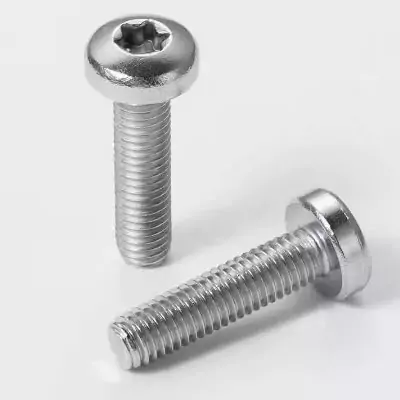caTEGORIES
Tags
Why Screws Manufacturers are Key to Advanced Engineering Solutions

Posted: March 13, 2025
Categories: News
Tags: news
Fasteners, such as screws, are incredibly adaptable. They find use in numerous sectors, including building, vehicle production, and electronics. Producers have adopted cutting-edge substances like iron alloys, rust-resistant steel, and copper alloys to boost fastener efficiency. Makers of these fasteners are crucial in engineering. They push progress forward and deliver dependable, eco-conscious solutions.
The Role of Fasteners in Engineering
Manufacturers are also adopting sustainable practices, using eco-friendly materials and energy-efficient processes. The future of screw manufacturing involves the integration of smart technologies and the use of AI for design optimization. Emerging materials offer new possibilities for screw applications. Manufacturers face challenges in meeting industry standards and balancing cost with innovation.
Importance of Fasteners in Structural Stability
Fasteners are key to upholding the stability of engineering works. They offer a solid and trustworthy way to join parts. This ensures pieces remain linked, even under pressure. Their structure spreads force across surfaces. This lowers the chance of material breakdown. It also strengthens the overall firmness of constructions.
Versatility and Uses of Fasteners Across Industries
The flexibility of fasteners shines through in their broad application across fields. They are vital in construction, automotive, electronics, and aerospace sectors. Fasteners adjust to various materials and settings. This makes them essential for both routine and unique engineering tasks.
How Fasteners Boost Product Durability
Fasteners greatly enhance the lifespan of products. They create strong bonds that resist wear over time. Engineers can tighten or loosen them without harming attached parts. This allows for simple upkeep and fixes. As a result, it prolongs the life of items.
Advances by Fastener Producers
Cutting-edge Materials in Fastener Creation
Producers have turned to advanced materials to improve fastener function. Substances like iron alloys, rust-proof steel, and copper alloys are popular. They offer toughness and resist rust. These traits ensure fasteners perform well in tough environments.
Precision Crafting Methods
CNC Machining and Its Effect on Fastener Quality
Accurate crafting methods, such as CNC machining, have transformed fastener production. This approach ensures precise measurements. It results in top-notch fasteners with uniform sizes and excellent performance. CNC machining also speeds up production. It cuts waste and boosts output.
Heat Processing for Greater Strength
Heat processing techniques enhance fastener toughness. Producers use these methods to change metal structures. This increases hardness and resistance to damage. It makes fasteners more durable against physical strain.
Tailoring Options from Producers
Producers provide tailoring options to suit specific task demands. These include size differences and distinct threading styles. Such choices let engineers pick fasteners that match their needs perfectly. This ensures top performance in varied uses.
Contribution to Eco-friendly Engineering
Green Materials and Finishes
Fastener producers increasingly use green materials and finishes. This supports eco-conscious engineering. A Bright Zinc Plate (BZP) coating resists rust. It reduces the need for frequent swaps. This lessens environmental harm.
Energy-saving Production Methods
Producers adopt energy-saving methods to cut carbon emissions. These approaches save resources. They also lower production expenses. This makes eco-friendly solutions more affordable.
For engineers seeking reliable fasteners, Pan Head Recessed Machine Fasteners DIN 7985 from QEWIT provide outstanding dependability. They come with options like Pozi Drive or Philips Drive for diverse uses. QEWIT is a professtional manufacturer, which provides high-quality fasters, fixings, stainless steel products and so on.

Future Directions in Fastener Production
Adding Smart Tech
The future of fastener production will evolve with smart tech integration. This promises to improve both utility and efficiency.
IoT-linked Fasteners for Live Tracking
A thrilling development is IoT-linked fasteners. These come with sensors for real-time stability checks. They deliver ongoing data on tension and surroundings. This allows proactive care and early fault detection. It boosts safety and trust in engineering projects.
AI in Design and Production Efficiency
Artificial Intelligence (AI) is key in refining fastener design and production. AI tools analyze huge datasets. They pinpoint ideal design features and streamline workflows. This leads to better quality, lower costs, and quicker delivery of new fastener solutions.
New Materials and Their Future Impact
New materials will reshape fastener production. Advances in material science bring alloys and composites with unmatched strength and rust resistance. They also reduce weight. These materials improve fastener performance. They also expand possibilities for cutting-edge engineering tasks.
Challenges for Fastener Producers
Meeting Tough Industry Rules
Fastener producers face strict industry rules. These demand high precision, toughness, and safety. Meeting them requires ongoing investment in quality checks and advanced tech. This ensures products meet or exceed regulations.
Balancing Cost and Creativity
Producers also struggle to balance cost with creativity. There’s a drive for new solutions. Yet, staying competitive means keeping costs in check. This requires refining production, using scale benefits, and finding affordable materials without sacrificing quality.
Conclusion: The Vital Role of Fastener Producers in Engineering
Fastener producers are essential in engineering. They supply critical parts that ensure stability, spark innovation, and promote green practices. As tech advances, they lead in adopting smart solutions and testing new materials. They meet the shifting needs of industries. By tackling challenges like rules and costs, they fuel progress vital for modern engineering.
FAQs
Q: What substances are typically used in fastener production?
A: Iron alloys, rust-resistant steel, and copper alloys are common. They provide strength and resist rust.
Q: How do heat processes enhance fastener toughness?
A: Heat processes modify metal structures. This boosts hardness and wear resistance. It makes fasteners more durable.
Q: What tailoring options do producers offer for fasteners?
A: Producers provide size variations, unique threading styles, and material choices. These are customized to specific project demands.


